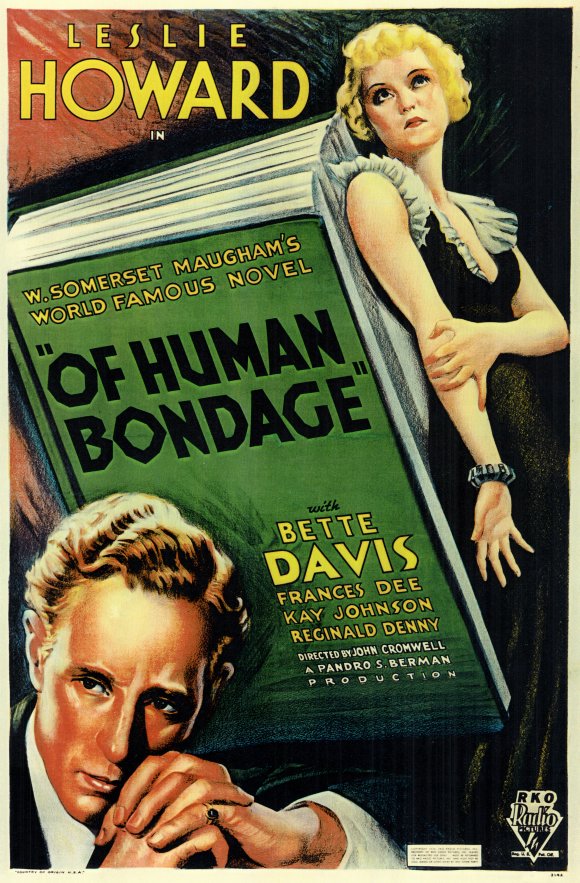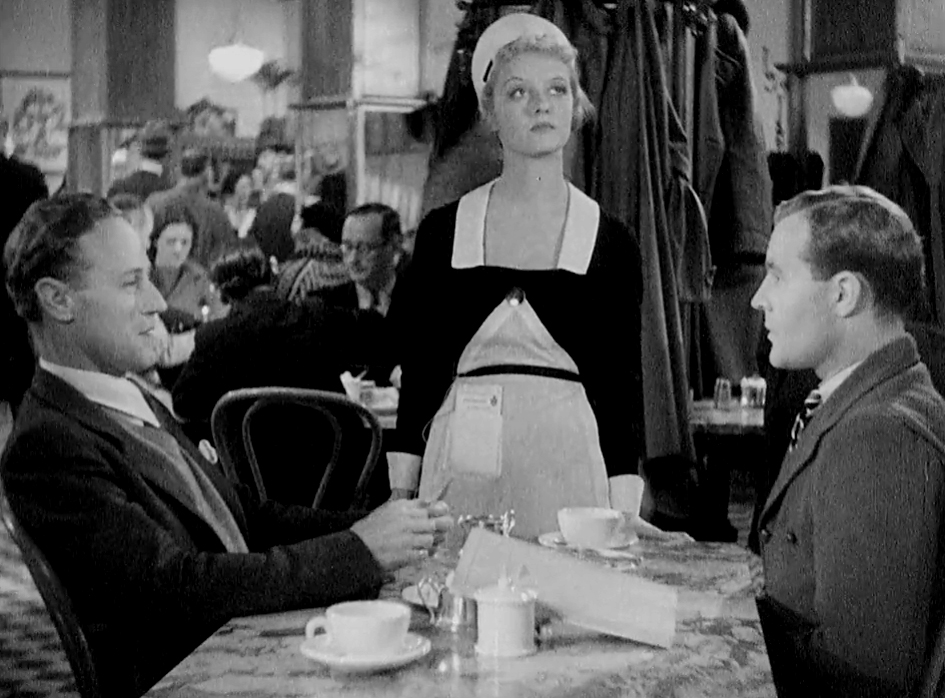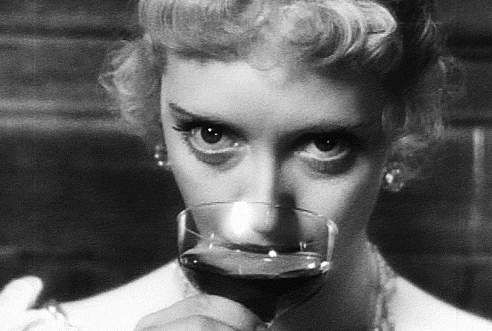 ICYMI - We announced last week that as a sidebar series to Anne Marie's "A Year With Kate", Nathaniel will be discussing each of the Oscar Roles of Bette Davis, 11 in total or 10 if you're a purist, as they appear within Kate's chronology. There will be spoilers.
ICYMI - We announced last week that as a sidebar series to Anne Marie's "A Year With Kate", Nathaniel will be discussing each of the Oscar Roles of Bette Davis, 11 in total or 10 if you're a purist, as they appear within Kate's chronology. There will be spoilers.
You should know as we begin this new mini-series that I am not, like Anne Marie with Kate, a Bette historian. My knowledge of Bette Davis is something like the cliff notes version that most people who love movies absorb along the way. The earliest and only pre-Jezebel (1938) Bette Davis performance I had seen before beginning this series was Three on a Match (1932) which didn't, in any way, prepare us for the Bette we know; she's not the MVP of that racy pre-code girls-gone-bad drama. So I'm happy to report that Of Human Bondage (1934) gives us the Full Bette-of-Legend Arc. She goes from unsatisfying bit player to unforgettable star to terrifying disintegrating old harpy all in the space of 83 minutes! It's quite the retrospective ride. [More...]

Bit Player
Of Human Bondage, based on the classic novel by W. Somerset Maugham, follows clubfooted young medical student Philip (Leslie Howard) through a disastrously one-sided romance with a Cockney waitress named Mildred (Bette Davis). Let's call her "Mildred Fierce" just to piss Joan Crawford off.
Audiences who hadn't read the book in 1934 might have assumed she was a mere subplot in her first scene due to the plot's focus on Philip's journey to medical school, Bette's lack of real fame and under the title billing (that would change!).
Bette's opening scenes at her job are relatively unimpressive what with that vanishing and reappearing amateur hour Cockney accent and her fidgety eye-rolling indifference to the camera; she doesn't seem eager to impress Philip OR the audience watching. Twice at least she even turns her back to the camera to shut us out. But what was most fascinating to me, from the vantage point of 2014, when Bette Davis has long since passed on into the cinema firmament and into legend, was the way this bitchy 'take it or leave it' indifference becomes its own theatrically magnetized starpower. Your only choice is to take it.
Philips friend, aghast at her rudeness, apologizes for introducing them.
I promised you something charming and she's turned out to be ill-natured and contemptible!"
Philip isn't as turned off. Their first two meetings don't go well. He's a poor nice chap and she's a mean-spirited golddigger but he persists and takes her out to dinner.
 The closeup changes everything. Bette Davis is now a star.
The closeup changes everything. Bette Davis is now a star.
Unforgettable Star
Leslie Howard, the lead, is suddenly subservient to the lesser known. The director John Cromwell, who was gifted with actresses, becomes her accomplice. He hands the movie to his fiery new star in a smart transitional sequence in which Philip searches for Mildred at a train station. We keep seeing women that might be her from a distance, through costuming, hairdos, and whatnot. But in the end, it's never the whole package. You can't substitute a star and you know that once the camera finds her again. There is only one Bette Davis. Your search is over even if she's just as ill-natured as ever. It's as if Bette is continually daring us to love her rather than asking us to as most movie stars would. She promises only abuse. Impossibly, that's as intoxicating as the "champaaiiiiiiyyyn" she's drinking.
Philip, enraptured, must have stood in for bewildered movie audiences at the time. She wasn't the right kind of beautiful like Carole, nor funny like Mae, definitely not warm and admirable like Greer or Norma and absolutely not alert and driven like Crawford with her lazy posture and eye-rolling. She was just this weird new unthinkable creature.
How pale you are. How strange. How cold.
But enough about Bette Davis. We return, briefly, to Mildred Fierce.

Terrifying Old Harpy
If you haven't yet seen Of Human Bondage you won't believe just how awful Mildred Fierce is. She breaks more than just Philip's heart. She's a life ruiner. She ruins people's lives!
The movie arrived in 1934 which is the approximate year which cleaves 30s cinema into Pre and Post-Code and it often feels like a mixture of both. There's plenty of sexual innuendo. Prostitution is implied and Mildred has a child out of wedlock even living with Philip for a period though they don't appear to be having sex. In one furious scene in which Bette Davis suddenly seems as old as she did in Baby Jane 30 years later, Mildred eviscerates Philip for resisting her advances. And yet her story does end with what feels like "moral" punishment. Let's just say that Mildred meets a sorry end.
 prostitution is not good for youBut for Bette Davis this was only the beginning.
prostitution is not good for youBut for Bette Davis this was only the beginning.
An Oscar would soon follow but not quite yet. Though she was technically not nominated for Of Human Bondage (1934), Academy members were reportedly so angry at her omission that she became a popular write-in vote and placed third in the final tally for the statue. (Oh to see the results in later years) The Oscar went to the very deserving Claudette Colbert (It Happened One Night) but Bette had most definitely arrived.
Next Episode: Dangerous (1935) on February 26th